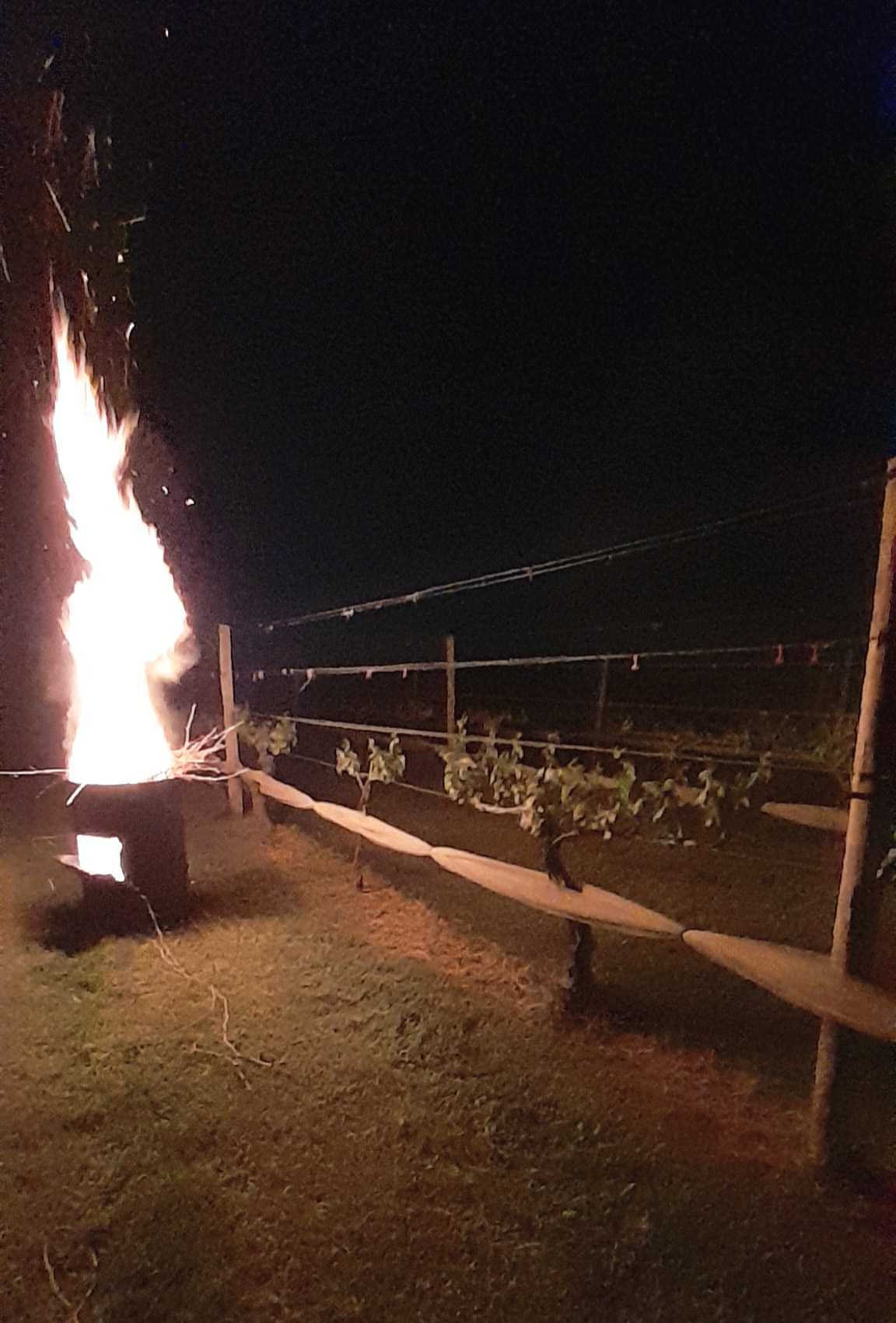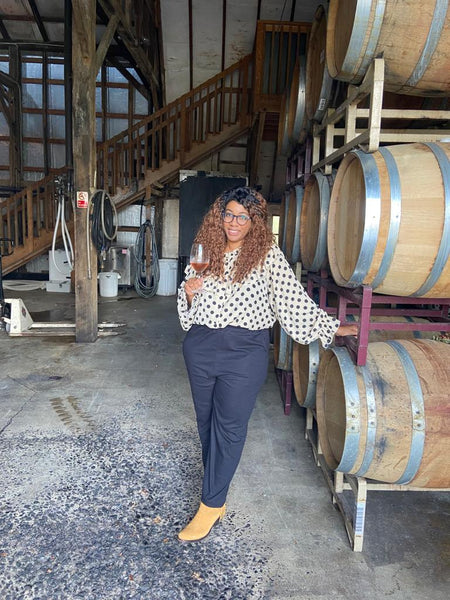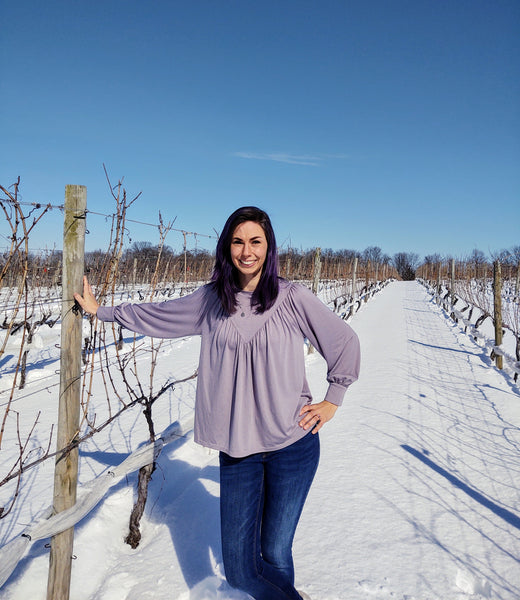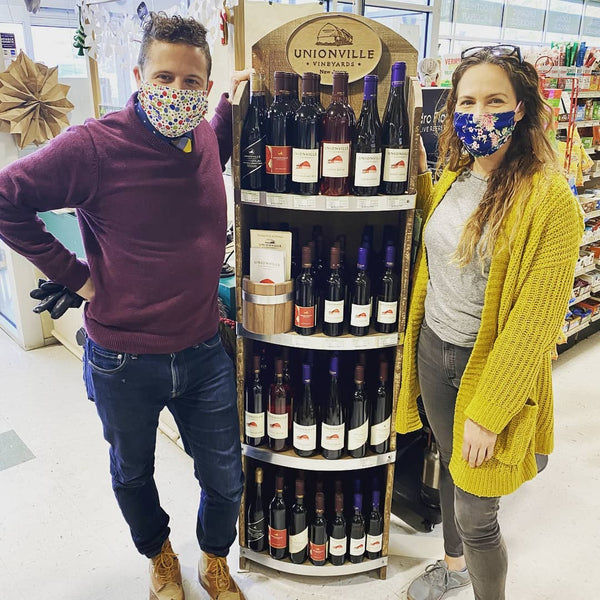Too Frigid For May: How Unionville Reacted to Destructive Frost


 the 4th year Rousanne, Marsanne, and Picpoul Blanc have given their first yields, ever. New plantings of Pinot Noir, Syrah, Cabernet Franc, and Viognier at Pheasant Hill thrived this season and will substantially increase our production next year, their fourth season. The Coventry Chardonnay block gave its best yield ever, ensuring that we will again make our increasingly popular unoaked expression of Chardonnay in 2023. As for those frosted fields, the large swaths of Rhone, Burgundy, and Riesling- they all survived. They enjoyed a year of full, lush canopies, and I am excited to see these vines back to work in 2024. Pictured here are two single shoots on one Chardonnay vine at the Top Block of Home Vineyard, survivors of the decimation. As the day ended, they served as a reminder: The sun rises and the sun sets, and hurries back to where it rises. So will the vineyard, and so will we.
the 4th year Rousanne, Marsanne, and Picpoul Blanc have given their first yields, ever. New plantings of Pinot Noir, Syrah, Cabernet Franc, and Viognier at Pheasant Hill thrived this season and will substantially increase our production next year, their fourth season. The Coventry Chardonnay block gave its best yield ever, ensuring that we will again make our increasingly popular unoaked expression of Chardonnay in 2023. As for those frosted fields, the large swaths of Rhone, Burgundy, and Riesling- they all survived. They enjoyed a year of full, lush canopies, and I am excited to see these vines back to work in 2024. Pictured here are two single shoots on one Chardonnay vine at the Top Block of Home Vineyard, survivors of the decimation. As the day ended, they served as a reminder: The sun rises and the sun sets, and hurries back to where it rises. So will the vineyard, and so will we.Leave a comment
Comments will be approved before showing up.
Also in Unionville Grapevine

Meet Ahjiné Garmony, Unionville's New Wine Club Manager
Desk or vineyard? This is the question I asked myself when making the leap of faith to leave my corporate life behind to pursue my passion for wine. After working in the medical communications space for 10 years, 2022 was the year of epiphany. It may sound old fashion, but I did have a major realization in the beginning of the new year that I was not meant to work behind a desk and chug along doing work that I was no longer passionate about.
My first notion of my interest of wine came during my frequent business trips to Boston about 4 years ago. For the first time I was immersing myself in the world of wine through client dinners, networking events and a lot of self-exploring through Beantown. During this time was my first encounter with sommeliers and wine experts. I was fascinated and intrigued by the expertise knowledge of wine, wine making and learning about the intricacies that goes into producing a bottle of wine. At this moment, I thought about how amazing it was to witness such passion for the craft of wine.
I enrolled in an online sommelier level one course at the Wine School of Philadelphia and began studying and reading everything I could about wine. This is where my 2nd major epiphany happened – I asked myself, the question that I stated in the beginning “desk or vineyard?”
This is the question that started the major stepping stone to my journey. I no longer wanted my wine passion to be in the background – I wanted to be 100% committed and both feet in. Unionville Vineyards was the first winery that popped into my head when I thought about making my “9:00- 5:00” switch. I attended a wedding at Unionville the year prior and loved the atmosphere, the wine and the people. The position that I applied to was half farm work half hospitality. I was instantly attracted to the idea of being out in the field to where it all begins in wine making. Thoughts of my “office” transforming into the beautiful vineyard was something I desired. I was pleasantly surprised to learn that Unionville has multiple vineyard sites with the Coventry site located within Coventry Farm in Princeton being my favorite (love the views there!) Working at the different sites allows you to see how the different micro climates, soil and land impact the vines and fruit cluster growth. Also working in the field to me was the perfect learning opportunity to understand the craft of wine making soup to nuts. Being surrounded by vines that produced grapes such as Pinot Noir, Cabernet Sauvignon, Syrah, Chardonnay was eye opening to me. I was so used to seeing the finished product of these grape varietals in their bottled form, but actually being able to perform farming techniques on the vines starts to create another level of perspective and appreciation for wine.
One of my favorite farming tasks to perform in the field on the vines is leaf pulling. Leaf pulling is when you remove leaves from around the fruit clusters. The rule of thumb is to remove leaves that are across and below from the fruit cluster. Removing the leaves creates oxygen flow, openness for pesticides to be sprayed and exposes the fruit to more sunlight. I enjoy seeing the satisfying result of a perfectly balanced vine with the right number of leaves removed. Working in the field creates a huge bond between you and your other field peers. You become a family unit and learn how to work together and communicate as a team. To me, this is a very important factor for having a successful vineyard. My experience with people at Unionville in general has been amazing. You have the opportunity to interact with people from all different backgrounds (teachers, college, corporate, etc.) which makes for some great conversations and comradery.
To anyone reading this, do not be afraid to follow your passion and take a chance on doing what you want to ensure your happiness. It was scary to make such a drastic shift from corporate to farm work, especially since the two are extremely opposite ends of the spectrum, but I have no regrets and I am happy with where my career and focus is going.

Meet Rachael White, Unionville's New Vineyard Manager
My name is Rachael White, and I am the new vineyard manager at Unionville Vineyards. I am thrilled to be part of the team and produce exceptional grapes for exquisite wine. I’m eager to begin this role and I wanted to introduce myself to share a little of my background.
I became interested in grape production right out of high school while working at my local research and extension center with the viticulture team. Little did I know when I started that viticulture would become my passion and career going forward. I got to work with industry famous people like Dr. Tony Wolf and Dr. Cain Hickey and interact with growers that were more than happy to share their joys and dismays about farming grapes. I fell in love with the seasonality and the fact I could always be outside! With a newfound purpose, I attended my first semester at Virginia Tech in the fall of 2013 and immediately focused my degree on wine grape production. I took every wine and vineyard related course offered at the time and enjoyed other horticulture courses along the way. I studied
abroad in Cortona, Italy where I learned old world wine tradition and began refining my palate.
I finished my Bachelor of Science degree in December of 2016 and looked to gain more knowledge from elsewhere in the world. I decided to work a vintage in the southern hemisphere and set my eyes on New Zealand. In March of 2017, I started work at a contract winery in the Marlborough region that produced Sauvignon Blanc, but also small batches of Pinot Noir, Gewurztraminer, and Pinot Gris. I worked on the “Red Team," and processed mostly Pinot Noir
in small orders for clients.

